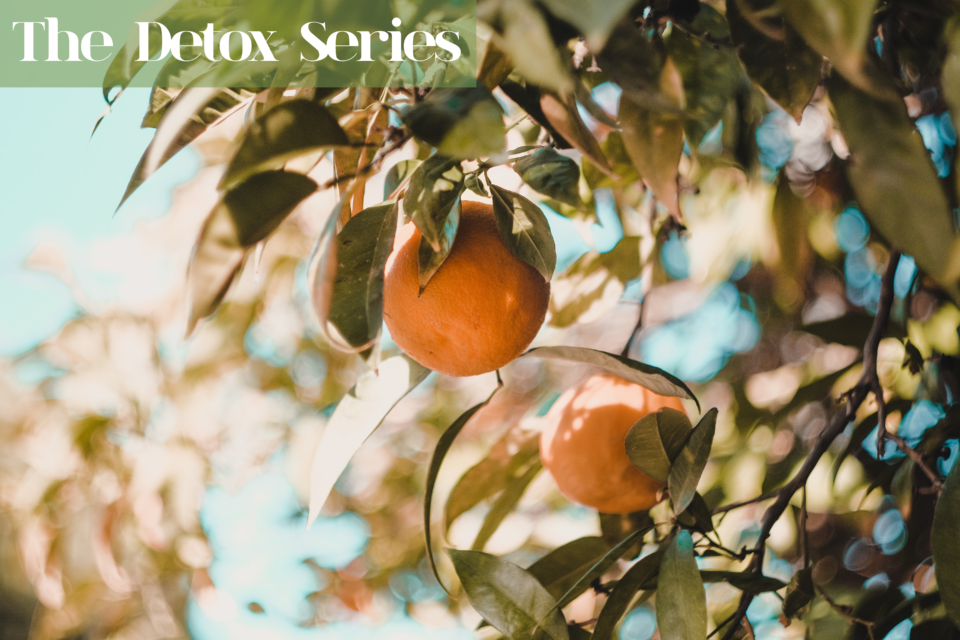How to Detox Heavy Metals Using Vitamin C
Did you know that you can use vitamin C to detox heavy metals from your body?
Vitamin C, also known as L-ascorbic acid, is often used as the first line of defense during the cold and flu season.
Not many people know about its powerful detoxifying capabilities, especially when it comes to heavy metals such as lead and mercury.
In this article, we will discuss the dangers of heavy metal poisoning and show you how you can use vitamin C to detox your body from heavy metals now.
The Dangers of Heavy Metal Poisoning
Heavy metals, such as mercury, lead and aluminum, accumulate in the body over time.
This can cause heavy metal poisoning – a condition that arises when excessive exposure to heavy metals affects the normal functioning of the body.
Common symptoms of heavy metal poisoning include nausea, vomiting, diarrhea, and abdominal pain.
Prolonged exposure may result in permanent damage to your vital organs and may increase the risk of various cancers.
Heavy metal poisoning can result from both sudden, severe exposure to heavy metals, and from chronic exposure over time.
Unfortunately, most of us are in danger of chronic heavy metal exposure, as these metals are found all around us – including our food and water.
If the heavy metal levels in your blood are not extreme, a simple detox protocol can help alleviate the symptoms.
More severe cases may require medical intervention in the form of chelation therapy.
Why You Should Use Vitamin C to Detox from Heavy Metals
A number of studies have shown that vitamin C can be a powerful ally in the fight against heavy metal poisoning.
A cross-sectional study of 4,213 children from 1988 to 1994 showed that high levels of vitamin C in the blood are independently related to a decrease in the prevalence rate of high concentrations of lead.
Vitamin C has also been found to accelerate the rate of lead excretion from the body in some animal studies.
Other studies have shown that antioxidants, including vitamin C, can reduce the accumulation of lead in the liver and kidney, as well as reduce the interference of lead on the delta-aminolevulinic acid dehydratase action of blood.
In addition, supplying your body with adequate levels of vitamin C will help keep it strong and healthy during the detox process.
Vitamin C plays an important role in your immune function, as well as biosynthesis of collagen, L-carnitine, and certain neurotransmitters.
How to Use Vitamin C in Your Detox: Dosage & Recipes
Synthetic vs. natural vitamin C sources
Overall, a majority of animal studies have shown differences in the comparative bioavailability of synthetic versus food-derived vitamin C.
Although synthetic and food-derived vitamin C appear to be equally bioavailable in humans, ingesting vitamin C as part of whole foods is considered preferable.
Consuming natural vitamin C will ensure you also consume a variety of other micronutrients, which will aid in the heavy metal detoxification process.
Recommended vitamin C dosage
The recommended dietary allowance of vitamin C for an adult female is 75 mg/day (90 mg/day for an adult male).
Individuals who smoke require 35 mg/day more of vitamin C than nonsmokers.
If you want to use vitamin C for detox purposes, feel free to slowly increase the dosage to 2,000 mg/day.
Keep in mind that consuming more than 2,000 mg/day of vitamin C can lead to nausea, diarrhea, and other uncomfortable symptoms.
Exceeding this limit can also reduce your vitamin B12 levels, cause erosion of dental enamel, or create an allergic response.
Possible interactions
Vitamin C supplementation can interact with some medications, including:
- Exjade
- Ferrous gluconate
- Ferrous sulfate
- Warfarin
- Birth control pills that contain some form of estradiol, Ethinyl estradiol, or mestranol
Always consult with your doctor before beginning any type of detox protocol.
Foods rich in vitamin C
Fresh fruits and vegetables are the best sources of vitamin C.
Citrus fruits, tomatoes, and potatoes are some of the best, most easily accessible foods rich in vitamin C, followed closely by red peppers, kiwis, broccoli, strawberries, Brussels sprouts, and cantaloupe.
Some fortified breakfast cereals also include significant amounts of vitamin C.
Detox recipes to get you started
The easiest way to incorporate vitamin C into your heavy metal detox protocol?
Smoothies!
Simply gather some of your favorite fruits (strawberries, mangos, pineapples, you name it!) and blend them with non-dairy milk.
Pour into a glass, top with your favorite berries, and serve as a delicious breakfast – or a great post-workout snack.
Other recipes from the blog:
- Scrambled Eggs with Apricots and Parmesan on Basil Spinach
- Beetroot Apple Soup with Horseradish & Pecan Rye Bread
Final Thoughts
Incorporating more vitamin C into your diet is a great way to accelerate the heavy metal detoxification process.
Want to get the latest scoop on beauty and wellness trends?
Sign up for our newsletter below!
Research:
Genetic and Rare Diseases Information Center, “Heavy metal poisoning,” April 27, 2017.
JAMA, “Relationship of Ascorbic Acid to Blood Lead Levels,” June 23, 1999.
Anatomy & cell biology, “Vitamin C modulates lead excretion in rats,” Dec 24, 2013.
Free Radical Biology and Medicine, “Can antioxidants be beneficial in the treatment of lead poisoning?” November 15, 2000.
National Institutes of Health, “Vitamin C: Fact Sheet for Health Professionals,” February 27, 2020.
Nutrients, “Synthetic or Food-Derived Vitamin C—Are They Equally Bioavailable?” October 28, 2013.







